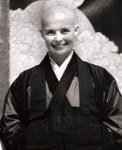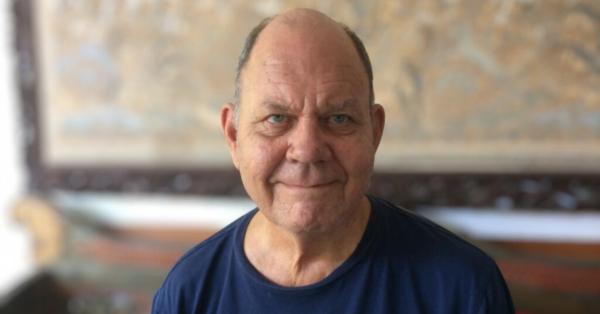In a September 22 article in the Huffington Post, Susan O’Connell, SF Zen Center’s Vice President, writes about difficulty and danger not as an obstacle to sitting meditation or practicing Buddhism, but as descriptive of what is required by the teachings of Buddhism.

Ze Sho Susan O'Connell
“Transformation is realized through a particular method of meditation (zazen) both on the cushion and in our daily activities. Zen meditation … is a program whose endeavor is the transcendence of the whole notion of self and selfishness. Lama Suryadas says: ‘This endeavor goes against the grain of every self-help program our culture has conditioned us to seek’.”
Susan describes Zen meditation as partly a path of “relinquishing all things, including the self.” Relinquishment may sound appealing, perhaps particularly when things are going badly, but it is not so appealing when it refers to things to which we cling, particularly our self-identity. Susan describes a Zen Buddhist perspective of relinquishment and its purpose:
“Zen calls for ‘relinquishment.’ Relinquishment of what? Relinquishment of the dualism of opposites – the ideas of good and bad, being and non-being, pure and impure … of self and other. This relinquishment, when it is total, is the dropping off of body and mind. It is a situation where self-centeredness is vaporized. It is the experience of the end of suffering.”











